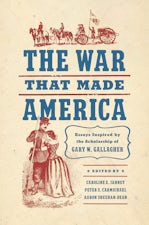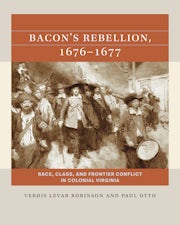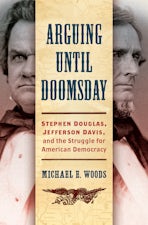Abolitionists Remember
Antislavery Autobiographies and the Unfinished Work of Emancipation
By Julie Roy Jeffrey
352 pp., 6.125 x 9.25, 11 illus., notes, bibl., index
-
Paperback ISBN: 978-0-8078-5885-1
Published: May 2008 -
E-book PDF ISBN: 979-8-8908-8299-8
Published: February 2012 -
E-book EPUB ISBN: 978-0-8078-3728-3
Published: February 2012
Buy this Book
- Paperback $42.50
- E-Book $29.99
For Professors:
Free E-Exam Copies
In the rush to mend fences after the Civil War, the memory of the past faded and turned romantic--slaves became quaint, owners kindly, and the war itself a noble struggle for the Union. Jeffrey examines the autobiographical writings of former abolitionists such as Laura Haviland, Frederick Douglass, Parker Pillsbury, and Samuel J. May, revealing that they wrote not only to counter the popular image of themselves as fanatics, but also to remind readers of the harsh reality of slavery and to advocate equal rights for African Americans in an era of growing racism, Jim Crow, and the Ku Klux Klan. These abolitionists, who went to great lengths to get their accounts published, challenged every important point of the reconciliation narrative, trying to salvage the nobility of their work for emancipation and African Americans and defending their own participation in the great events of their day.
About the Author
Julie Roy Jeffrey is professor of American history at Goucher College and author of The Great Silent Army of Abolitionism: Ordinary Women in the Abolitionist Movement (from the University of North Carolina Press).
For more information about Julie Roy Jeffrey, visit
the
Author
Page.
Reviews
"An engaging work that convincingly uncovers challenges to reconciliationism. . . . Advances our understanding of antislavery by drawing attention to the movement's ordinary people both black and white of both genders who did the movement's work outside of the limelight."--American Historical Review
"[Adds] an important piece of knowledge to the study of the Gilded Age. . . . Ought to be widely read."--Journal of American History
"Marvelous. . . . Jeffrey's welcome work focuses on abolitionists who wrote memoirs and reminiscences and participated in antislavery reunions and conventions between 1865 and 1900. . . . Highly recommended."--Choice
"A nuanced analysis of the struggle to remember the sectional conflict, distinguishing emancipationist, white supremacist, and reconciliationist memories."--North Carolina Historical Review
"Jeffrey's analysis adds significantly to our understanding of abolitionists and their postbellum commitment to their antebellum ideals. . . . Insightful."--The Pennsylvania Magazine of History and Biography
"Raises and begins to answer the question of how the victors of the Civil War ended up losing the peace."--Journal of Southern History




